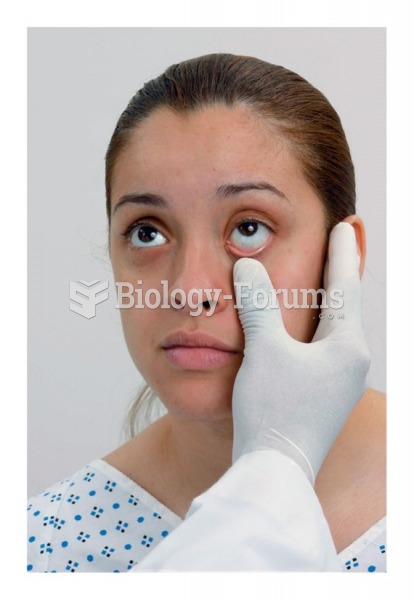|
|
|
People with high total cholesterol have about two times the risk for heart disease as people with ideal levels.
Children with strabismus (crossed eyes) can be treated. They are not able to outgrow this condition on their own, but with help, it can be more easily corrected at a younger age. It is important for infants to have eye examinations as early as possible in their development and then another at age 2 years.
Thyroid conditions may make getting pregnant impossible.
Bacteria have been found alive in a lake buried one half mile under ice in Antarctica.
Astigmatism is the most common vision problem. It may accompany nearsightedness or farsightedness. It is usually caused by an irregularly shaped cornea, but sometimes it is the result of an irregularly shaped lens. Either type can be corrected by eyeglasses, contact lenses, or refractive surgery.







